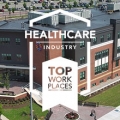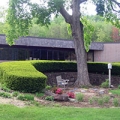Meeting Women Where They Are: REACH and PROUD Programs at Wheeler Offer Hope and Support for Recovery
Wheeler’s commitment to person-centered, trauma-informed care is on full display in two vital programs for women navigating substance use recovery: REACH (Recovery, Engagement, Access, Coaching, and Healing) and PROUD (Parents Recovering from Opioid Use Disorder). While distinct in structure and scope, both programs offer voluntary, compassionate support tailored to the unique needs of each individual.
REACH: Peer-Led Support for the First Steps in Recovery
 Launched to support women and families through the earliest and often most uncertain phases of recovery, the REACH program offers short-term, non-clinical peer support. Services are available for up to 90 days, providing practical help such as transportation to AA meetings, grocery support, childcare essentials, and more. The REACH team includes a REACH Navigator who works closely with clients, providing flexible, mobile support throughout the community.
Launched to support women and families through the earliest and often most uncertain phases of recovery, the REACH program offers short-term, non-clinical peer support. Services are available for up to 90 days, providing practical help such as transportation to AA meetings, grocery support, childcare essentials, and more. The REACH team includes a REACH Navigator who works closely with clients, providing flexible, mobile support throughout the community.
Referrals to REACH come from various sources: community partners, healthcare providers, or even self-referrals. The program is designed to reduce barriers, build trust, and stabilize basic needs in early recovery. When a participant’s needs exceed what REACH can offer, particularly if they require clinical care, they may be referred to PROUD for extended, therapeutic support.
 “April”, for example, was referred to REACH in January 2025. At the time, she had been sober for four months and living in a sober house, with her young daughter residing with a relative. A REACH Navigator began meeting with April weekly and, later, daily as her housing situation became more unstable. Together, they attended 12-step meetings, secured recovery support, and eventually found stable housing. April recently celebrated seven months of sobriety and has reunited with her daughter in a home of their own. REACH even helped furnish the apartment with essentials, transforming a critical milestone into a new beginning.
“April”, for example, was referred to REACH in January 2025. At the time, she had been sober for four months and living in a sober house, with her young daughter residing with a relative. A REACH Navigator began meeting with April weekly and, later, daily as her housing situation became more unstable. Together, they attended 12-step meetings, secured recovery support, and eventually found stable housing. April recently celebrated seven months of sobriety and has reunited with her daughter in a home of their own. REACH even helped furnish the apartment with essentials, transforming a critical milestone into a new beginning.
Another client, “Mae”, entered the REACH program at a time when she was still struggling with alcohol use and skeptical about traditional treatment options. Over two months, her Navigator maintained consistent, nonjudgmental support, even taking her calls during relapses. Eventually, Mae felt safe enough to seek formal treatment, and her Navigator brought her to a local withdrawal management center. Today, she’s enrolled in a relapse prevention program and on track to be reunified with her daughter this fall.
PROUD: Clinical and Peer Recovery Care for Long-Term Success
 For individuals needing ongoing clinical support, the PROUD program builds on the foundation REACH sets. PROUD offers comprehensive, wraparound services including access to a clinician, part-time and full-time peer recovery specialists, and a client care coordinator. Women in PROUD are often facing greater risk factors and more complex treatment needs.
For individuals needing ongoing clinical support, the PROUD program builds on the foundation REACH sets. PROUD offers comprehensive, wraparound services including access to a clinician, part-time and full-time peer recovery specialists, and a client care coordinator. Women in PROUD are often facing greater risk factors and more complex treatment needs.
Unlike REACH, PROUD provides clinical group therapy, walk-in intake, and no time limit on services, allowing the team to meet clients wherever they are, emotionally, physically, and psychologically, for as long as necessary. The team works collaboratively to ensure each woman’s treatment plan evolves with her needs, emphasizing safety, healing, and empowerment.
PROUD currently serves the New Britain and Hartford regions. It operates with two teams of four staff, making it a robust resource for women seeking long-term transformation in their recovery journey. Like REACH, PROUD is funded by the Department of Mental Health and Addiction Services (DMHAS), offering an added layer of sustainability.
Why Two Programs?
The beauty of Wheeler’s dual approach lies in the flexibility it offers. Not every woman is ready—or needs—to engage in clinical treatment right away. Some benefit most from peer support and assistance with life’s logistics. Others require more structured interventions to break the cycle of addiction. By operating both REACH and PROUD, Wheeler ensures that every woman has access to the right level of care, at the right time, from a team that centers her lived experience.
Hilary Camacho, women and family recovery navigator, reflects on why she shows up to work each day: “Making a difference in people’s lives is my passion.” Caitlin Siggia, women’s recovery navigator, adds, “I wish the REACH program had been around when I was pregnant and struggling with substance use.”
Both programs remain voluntary and client-led, allowing women to engage at their own pace and maintain autonomy in their recovery journeys. Whether it’s a stroller, a bus pass, or a support group, the message from Wheeler is clear: You are not alone, and your story is worth investing in.





